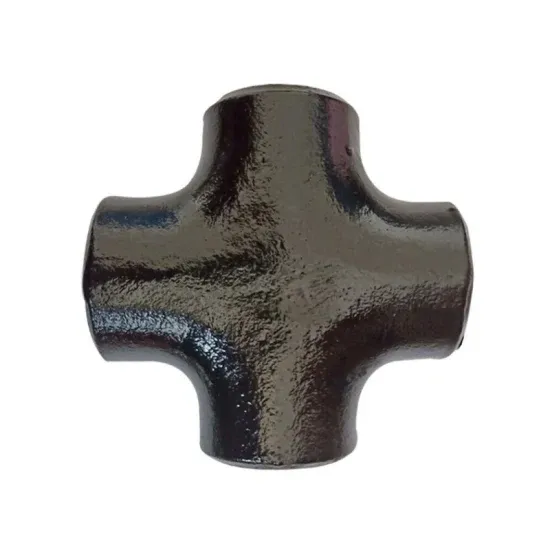-
Cangzhou Yulong Steel Co., Ltd.
-
Phone:
+86 13303177267 -
Email:
admin@ylsteelfittings.com
- English
- Arabic
- Italian
- Spanish
- Portuguese
- German
- kazakh
- Persian
- Greek
- French
- Russian
- Polish
- Thai
- Indonesian
- Vietnamese
- Zulu
- Korean
- Uzbek
- Hindi
- Serbian
- Malay
- Ukrainian
- Gujarati
- Haitian Creole
- hausa
- hawaiian
- Hebrew
- Miao
- Hungarian
- Icelandic
- igbo
- irish
- Japanese
- Javanese
- Kannada
- Khmer
- Rwandese
- Afrikaans
- Albanian
- Amharic
- Armenian
- Azerbaijani
- Basque
- Belarusian
- Bengali
- Bosnian
- Bulgarian
- Catalan
- Cebuano
- China
- China (Taiwan)
- Corsican
- Croatian
- Czech
- Danish
- Esperanto
- Estonian
- Finnish
- Frisian
- Galician
- Georgian
- Kurdish
- Kyrgyz
- Lao
- Latin
- Latvian
- Lithuanian
- Luxembourgish
- Macedonian
- Malgashi
- Malayalam
- Maltese
- Maori
- Marathi
- Mongolian
- Myanmar
- Nepali
- Norwegian
- Norwegian
- Occitan
- Pashto
- Dutch
- Punjabi
- Romanian
- Samoan
- Scottish Gaelic
- Sesotho
- Shona
- Sindhi
- Sinhala
- Slovak
- Slovenian
- Somali
- Sundanese
- Swahili
- Swedish
- Tagalog
- Tajik
- Tamil
- Tatar
- Telugu
- Turkish
- Turkmen
- Urdu
- Uighur
- Welsh
- Bantu
- Yiddish
- Yoruba

Nov . 01, 2024 11:39 Back to list
Understanding ASTM A333 Grade 6 Specifications and Applications in Low-Temperature Service
Understanding ASTM A333 Gr. 6 A Key Standard for Low-Temperature Service
ASTM A333 Gr. 6 is a crucial specification in the world of materials engineering, particularly for those associated with the construction and maintenance of pressure vessels and piping systems that operate under low-temperature conditions. This standard defines the requirements for seamless and welded carbon and alloy steel pipe intended for use in low-temperature service. Understanding this specification is essential for engineers, designers, and manufacturers dealing with projects in sub-zero environments or other severe conditions.
Overview of ASTM A333 Gr
. 6ASTM A333 Grade 6 encompasses a variety of steel pipes that have been specifically designed to maintain their mechanical properties at extremely low temperatures. The standard specifies requirements for chemical composition, mechanical properties, and manufacturing processes, ensuring that these materials can withstand the demands of their intended applications.
The primary alloying elements in A333 Gr. 6 steel include manganese, phosphorus, sulfur, and silicon. The typical carbon content is limited to a maximum of 0.3%, which enhances the ductility and toughness of the material. These properties are particularly vital when the steel is subjected to the rigors of cold environments, which can cause embrittlement in less resilient materials.
Mechanical Properties
One of the key aspects of ASTM A333 Gr. 6 is its mechanical properties. The standard mandates that the pipe must achieve a minimum yield strength of 35 ksi (240 MPa) at room temperature and a minimum tensile strength of 60 ksi (415 MPa). More importantly, it should maintain these properties even at temperatures as low as -50°F (-45°C). This exceptional performance under low temperatures makes ASTM A333 Gr. 6 an ideal choice for industries such as oil and gas, cryogenic applications, and shipbuilding.
astm a 333 gr 6

Welding and Fabrication
The applicability of A333 Gr. 6 extends beyond its usage in piping systems; it is also suitable for welding. The standard provides guidelines concerning the welding procedures that should be employed to maintain the integrity of the steel during fabrication. Welders must follow specific preheating and post-weld heat treatment recommendations to prevent the development of brittle microstructures that could compromise the steel’s performance at low temperatures.
Applications
The applications for ASTM A333 Gr. 6 are vast. It is widely used in the oil and natural gas sector, particularly for pipelines that transport liquids and gases over long distances through regions that experience frigid climates. Additionally, it finds applications in pressure vessels and storage tanks designed for liquefied gases, ensuring safety and reliability even in the most challenging conditions.
Conclusion
In summary, ASTM A333 Gr. 6 is an indispensable material standard for engineers and manufacturers who operate in low-temperature environments. Its defined chemical composition and mechanical properties ensure that structures made from this material will withstand the tests of time and temperature. By adhering to the specifications set forth in ASTM A333 Gr. 6, industries can continue to innovate and expand their capabilities, all while maintaining the highest safety and performance standards in their operations. Understanding and applying this standard is key to ensuring the integrity and longevity of critical infrastructure and equipment operating in harsh conditions.
Latest news
-
ANSI 150P SS304 SO FLANGE
NewsFeb.14,2025
-
ASTM A333GR6 STEEL PIPE
NewsJan.20,2025
-
ANSI B16.5 WELDING NECK FLANGE
NewsJan.15,2026
-
ANSI B16.5 SLIP-ON FLANGE
NewsApr.19,2024
-
SABS 1123 FLANGE
NewsJan.15,2025
-
DIN86044 PLATE FLANGE
NewsApr.19,2024
-
DIN2527 BLIND FLANGE
NewsApr.12,2024
-
JIS B2311 Butt-Welding Fittings LR/SR 45°/90° /180°Seamless/Weld
NewsApr.23,2024











